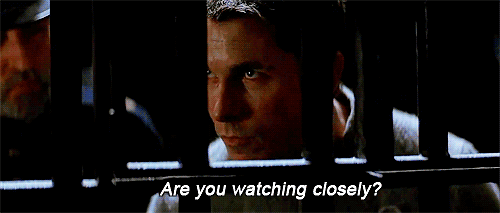Why The Prestige Is Christopher Nolan’s Best Film
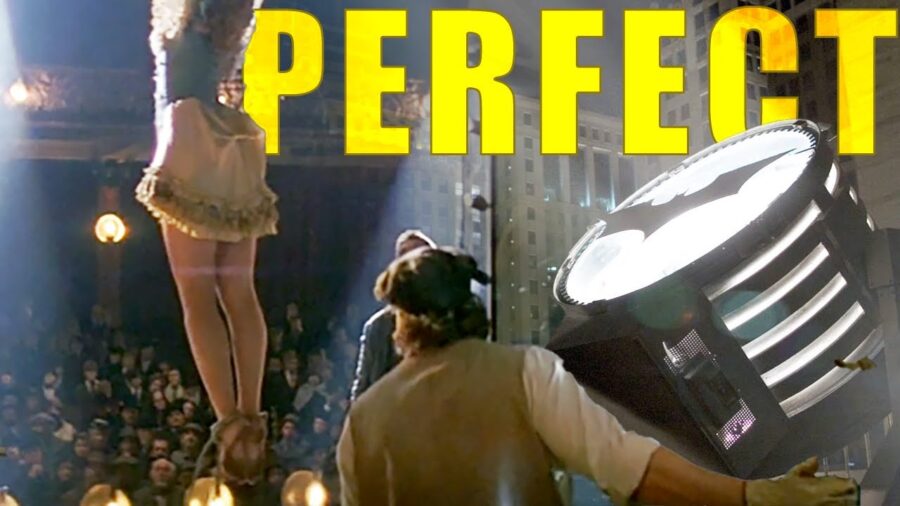
The Prestige seemed poised to be a landmark entry in Christopher Nolan’s ever-growing filmography. After the release of Batman Begins, Nolan was given the chance to make a passion project and he came up with an adaptation of Christopher Priest’s 1995 novel about two rival magicians.
While the film performed admirably for a period drama – $53 million domestic box office on a $40 million dollar budget, with an additional $56 million in international revenue – it didn’t light the pop culture on fire. And with Nolan’s following film being The Dark Knight, The Prestige ended up being sandwiched between two Batman films, ensuring that it would be lost in the ensuing years as Nolan’s body of work continued to grow.
And though I’ve previously called Inception Nolan’s masterpiece, it’s time to get a little more personal and start some debate: The Prestige is Nolan’s best film and the one that I love to watch the most. Let’s examine why.
The Prestige of It All
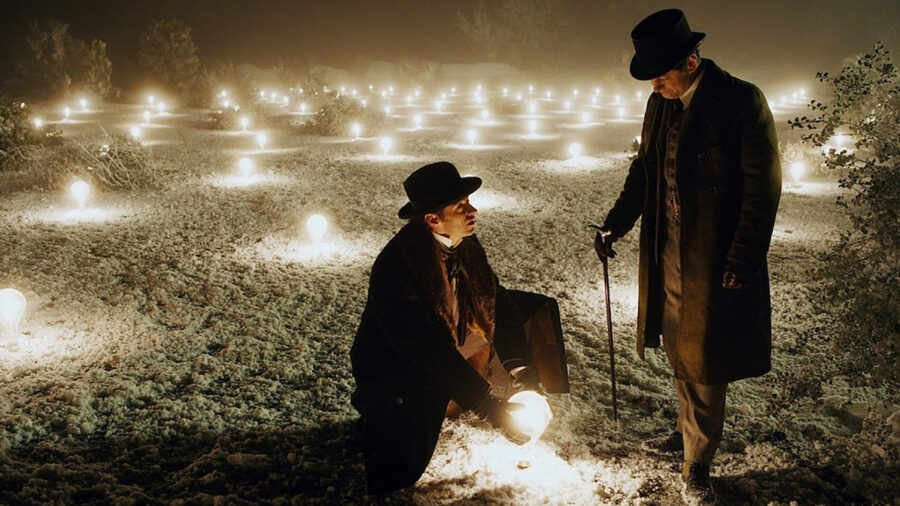
Since Christopher Nolan was able to successfully revitalize the Batman franchise, The Prestige was allowed to be a far more expensive production than it likely would have been under different circumstances. Nolan takes advantage of his post-Batman clout in every way, making what could have been a smaller affair and turning it into a polished and extravagant production.
Nolan shoots The Prestige with a strong focus on clarity of intention. One of the issues he learned from Batman Begins was how to better convey key moments of action. While this film isn’t action-heavy in the way we expect from populist cinema, Nolan realizes how telling a story about stage magic requires his camera and his editing to be as precise as the best sleight-of-hand tricks.
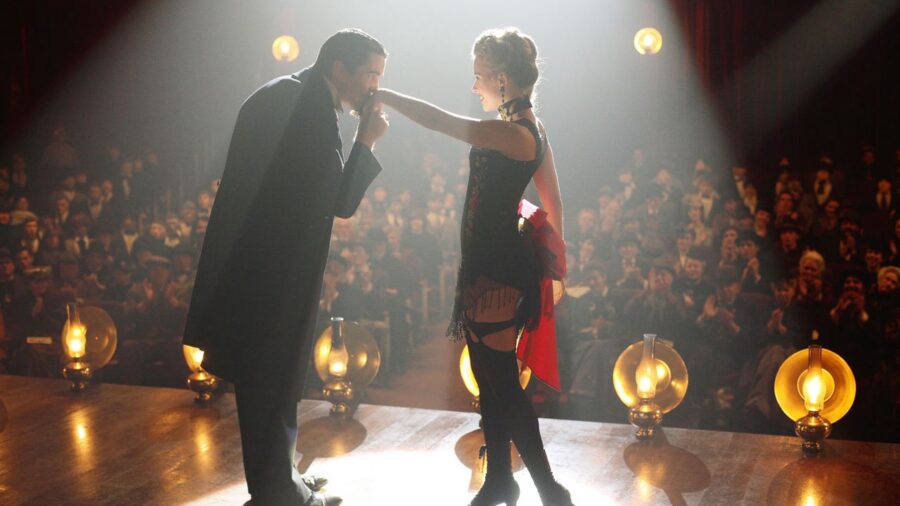
In taking that approach into account, The Prestige showcases Nolan at a critical point in his filmmaking evolution. His early movies often relied on frenetic camera motion and editing to evoke a sense of danger or excitement. When he gets to this movie, there is a honed, methodical nature that begins to take shape in really exciting ways. And it would prove to be an asset going forward with his second Batman film.
As a piece of prestige (heh heh) filmmaking, The Prestige doesn’t get the accolades it deserves in comparison to other period dramas. The costume design and location shooting are all jaw-droppingly gorgeous. Every physical element of the movie is a delight to look at, and it’s a shame that the technical aspects of the film aren’t highlighted more often.
But it’s not just the texture of The Prestige that makes it such a wonderful experience.
A Cast of Magicians
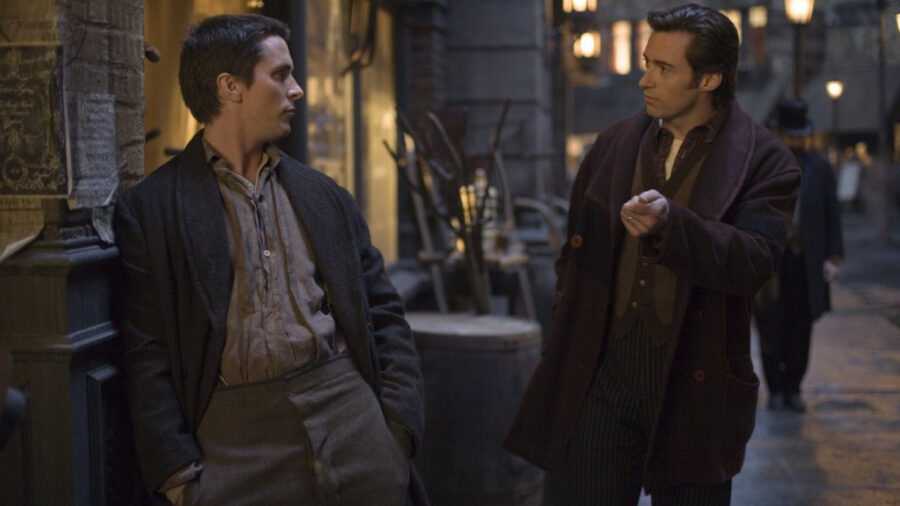
The Prestige boasts an impressive ensemble of actors. This doesn’t come as a shock to people familiar with Nolan’s work, but it’s interesting that there are actors in this movie that haven’t worked with Nolan on another project. Because Christopher Nolan is known for working with certain actors multiple times, some of these one-off performances for him don’t get brought up a lot.
The most criminally neglected of these is Hugh Jackman as Robert Angier, the man whose wife was accidentally killed by another magician’s assistant, Alfred Borden (Christian Bale). This is one of Hugh Jackman’s greatest roles and it is never talked about. That’s likely because the lead role of Angier isn’t a particularly likable one. Angier is a man hellbent on burying Borden’s career, and the lengths he goes to end up consuming his soul. It’s a tragic but compelling character and Jackman brings him to life in every frame. That’s certainly the case with the majority of the cast in The Prestige as well, but Jackman deserves to be spotlighted for anchoring the film with a character who is a pretty awful by the end of it all.
On the opposite end, you have Christian Bale as Alfred Borden. His story is a little more twisty but nonetheless intriguing and captivating. Borden as a character is more committed to the technical prowess of his stage magic rather than the pizazz of it. Because of this, Bale has to play things a little closer to the chest than Jackman. It means his take on things has to be more reserved but it’s a purposeful decision that pays off in the end. The Prestige offers Bale a chance to do what he does best and he doesn’t disappoint.
Alongside these two leads is a strong supporting cast that fills out The Prestige. Michael Caine, who has worked with Nolan on every one of his features since Batman Begins, plays a similar role to Alfred in the Batman films as Angier’s assistant, Cutter. Rebecca Hall is a master at naturalistic performance and brings real pathos to Borden’s wife, Sarah. Scarlett Johansson feels somewhat miscast as Olivia, the assistant who ends up betraying Angier and falling in love with Borden. She’s not bad but she doesn’t fit in with the period like the rest of the cast. And, Andy Serkis is fun if minimally used as Alley, the assistant to Nikola Tesla.
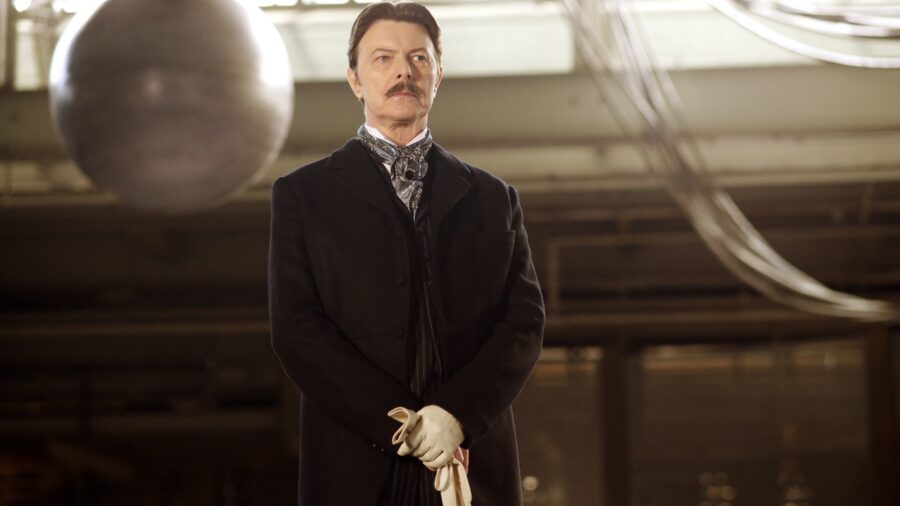
Ahh, Nikola Tesla played by David freakin’ Bowie. There are moments in film history where an actor and a role come together in a way that feels like the most obvious thing in the world. David Bowie as Nikola Tesla in The Prestige is one of those serendipitous moments.
Bowie is incredible as Tesla. He’s built up as this man of mystery and power. His eventual introduction has him walking through an electrical field as if he is a god. Angier and Borden are simply magicians, but Tesla is a legitimate sorcerer, conjuring the magicks of the earth to create wonders both awe-inspiring and terrifying. Bowie’s performance of Tesla isn’t grandiose or cartoony at all. He plays Tesla as a defeated genius, hermiting himself away from a world that has shunned his attempts at making it a better place. While his use in the film ends up being supernatural and takes the story into a chilling science-fiction arena, Bowie never falters in his performance and Tesla remains a fascinating character that never transcends to a level of untouchability.
So, we’ve looked at the technical prowess and the phenomenal cast of The Prestige, but why is it my favorite of Nolan’s filmography?
The Magic Is Real
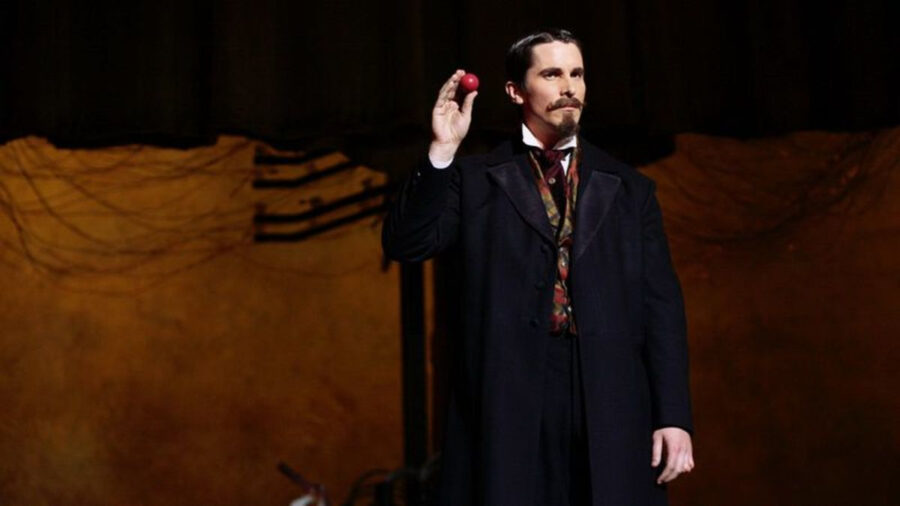
The Prestige is the one film of Nolan’s that I find myself returning to over and over again for many reasons. One of those is that it’s a movie which rewards an immediate rewatch. Even though The Prestige is coming up on fifteen years in the pop culture landscape, I still don’t want to spoil the big reveal that makes the movie deserve an immediate viewing. There are thematic clues throughout the movie that add an extra layer of cleverness to the entire endeavor. In this way, The Prestige feels like an evolution of the storytelling and filmmaking Nolan presented in Memento.
Even more prominent is the emotional strength of The Prestige. From The Dark Knight onwards, Nolan has cultivated a particular chilliness to his stories that hasn’t always worked. That doesn’t mean his stories are bad or devoid of emotional weight, but Nolan seems to be more involved in how his movies are told rather than why.
And that led me to a new take on The Prestige: Angier and Borden represent two sides of Nolan as a filmmaker. One is driven by a passion for the spectacle of it all and the other is driven by the meticulous nature of his craft. In the end, Borden kills Angier and it now feels like a retroactive statement on Nolan’s own path as an artist. He left behind the wide-eyed, bells-and-whistles showman that brought the world flashy fare like Memento and Batman Begins and committed to his illusions with Borden’s laser-like focus. Instead of relying on a lot of modern technology trickery like Angier, Nolan reaffirmed a desire to do things for real in his movies whenever he can. It’s an artistic tactic that Borden himself would approve of.
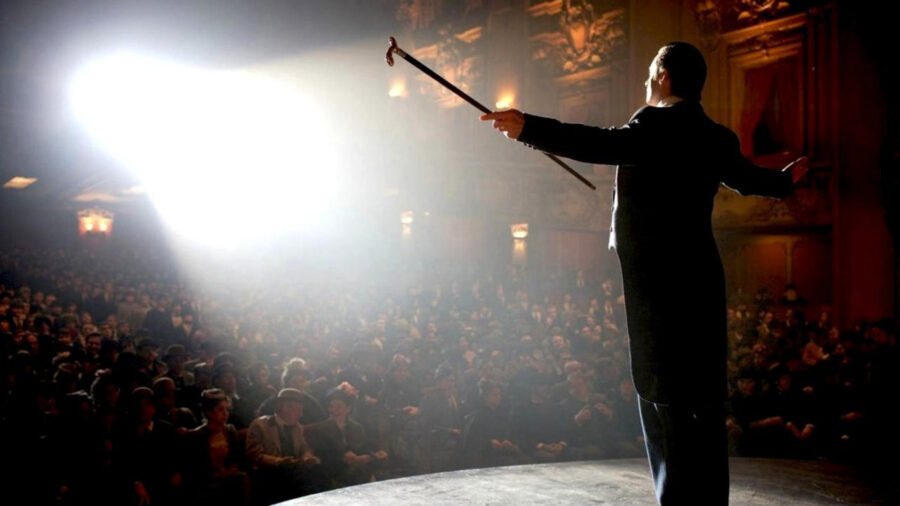
Whether you find this take interesting or not isn’t really the point. The point is that I find a new way to appreciate and enjoy The Prestige every time I watch it. It draws me in and puts me under its spell in a way none of Nolan’s other movies ever do. And as a statement about the magic of art itself, Angier’s final words never cease to hit me hard:
“You never understood why we did this. The audience knows the truth. The world is simple, miserable, solid all the way through. But if you can fool them, even for a second, then you can make them wonder. And you get to see something very special. You really don’t know. It was the look on their faces.”
The Prestige continues to put that look on my face every single time I view it. Inception may be the Nolan film that best represents him as a filmmaker, but The Prestige is the one I know I’ll be watching over and over again for the rest of my years. Because The Prestige’s magic is real. You just have to be looking for it.
